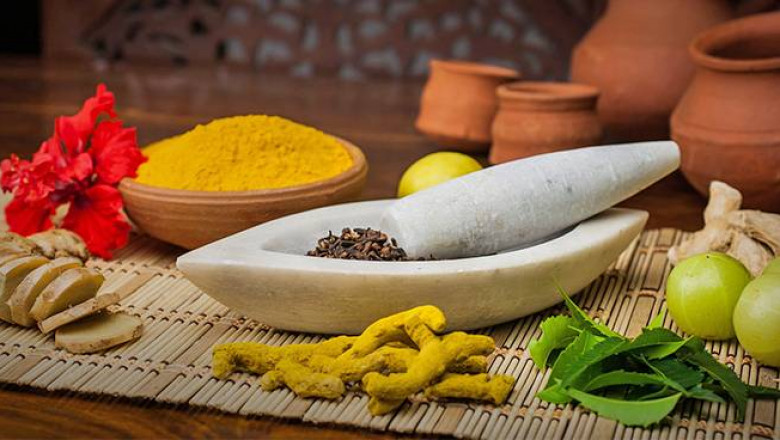views

Ayurveda is a medical practice that started in India thousands of years ago. It’s also one of the oldest medical practices in the world.
It goes above and beyond the treatment of illnesses. It’s a complete lifestyle that’s supposed to restore balance to your body, mind, and soul.
But despite being developed 3,000 years ago, there’s still a lot of things people don’t know about the practice. Here are a few fun facts about Ayurveda we bet you didn’t know.
The Principles Are Basic Yet Extremely Effective
Ayurveda is based on the principle that the body is made up of 5 elements space, air, water, fire and earth. When all these elements work in congruence they make a healthy person.
While all of us have all the five elements, they are in different proportions in our body making a person one of these three vata, kapha or pitta. An imbalance in any of these elements makes a person ill and a realignment of these humors can cure a disease.
The Three Doshas Make You Who You Are
Before you scoff at the idea, here is what Ayurvedic practitioners believe. A person who is of a particular dosha has unique characteristics.
Due to the dominance of one of the doshas it affects a person's temperament, the diseases that can affect him and even governs how they react to stress. Apart from that it also dictates the type of body structure they have and the foods they are most likely to love.
Ayurveda Is a Holistic Approach
In Ayurveda disease is known as disharmony (or imbalance of energy flow) between mind, body, and soul.
This means that your body, its organs, your mind and your mental makeup all play a role in diagnosis and treatment. This way it tries to treat the root of the problem rather than the organ or part of the body that is affected factoring in how the medicines will affect the person as a whole.
Your Environment Plays an Important Role In Your Health
What you eat, where you live, even the colors you are attracted to can be explained by Ayurveda. According to the principles, a person's dosha mitigates this and therefore being in an environment that is contrary to your dosha will elevate one particular humor in the body leading to an imbalance and disease. Ayurveda seeks to negate that effect and bring the balance back into equilibrium.
Ayurveda Involves More Than Just Spices and Herbs
Ayurvedic medicines contain not only herbs but also other substances like milk, ghee, butter, honey, molasses, gingelly oil, rock salts, minerals, ashes and self-fermented alcohol. While herbs are a major component of the medicines prescribed, other compounds are used as well. In some cases the other compounds are adjuvants or carriers (help the medicine perform better) and in others they form the medicine itself.
Ayurveda Is a Complete Lifestyle
The word Ayurveda is derived from two words; 'Ayur' meaning life and longevity and 'veda' means knowledge. The basic scripture of Ayurveda talks about living life the Ayurveda way, where every aspect is in line with keeping your body's humor in check.
So if you have diabetes or high blood pressure, and with Ayurveda your blood sugar levels have been brought under control, you will notice that along with the medication there are several lifestyle changes you will have to make. You will notice a gradual change and you will wake up every morning feeling energetic and good.
These are a few fun facts about Ayurveda. If you want to learn more about the practice, we recommend reading Salim Rana’s book.
In his book, 'Healthy Living Lifestyle: Eradicating Illness Naturally', Salim Rahim Rana explains the principles of the ancient art of Ayurveda. It is an easy guide for all of those seeking a way to achieve a healthier lifestyle through natural means.
It seeks to convey and discover how the use of Ayurveda will allow individuals to kickstart their body's natural detoxification and self-healing process to reach the peak of true health and unlimited energy.
The book is available on Amazon and Kindle.












